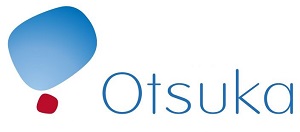How COVID-READY guidelines help healthcare providers evaluate psychological coping strategies among older adults: Thai perspectives
Submitted by:
Nahathai Wongpakaran, MD, FRCPsychT, Tinakon Wongpakaran, MD, FRCPsychT, Nattapong Tangjitboonsanga, MD, Kewalee Kaewkittikul, MD, Issaren Nantasen, MD
Department of Psychiatry, Faculty of Medicine, Chiang Mai University, Chiang Mai, Thailand
Key highlights:
- COVID-READY presents guidelines for professionals regarding coping strategies for covid-19 anxiety and fear among older Thai adults.
- COVID-READY was developed based-on Thai culture, societal views and Buddhist values.
- COVID READY covers four tasks, i.e., I. evaluating anxiety and fear related to COVID-19, II. discussing knowledge about COVID-19, III. building up psychological immunity and IV. strengthening psychospiritual preparedness, including supporting and encouraging regular meditation practice, recollections of loving-kindness and equanimity and contemplating noble truths such as impermanence and death.
- COVID READY makes it easier for physicians to assess and provide appropriate interventions to patients. It also provides multifaceted psychological information serving as a resource for physicians while reflecting in this emerging disease.
Back in January 2020, Thailand was the first country reporting the first case of confirmed COVID-19 outside China. Through disease control measures, law enforcement, and disease prevention campaigns the spread of COVID-19 was effectively controlled, but people were affected by anxiety and fear.
A COVID-READY guide for professionals was developed as a tool to help manage anxiety and fear related to the COVID-19 pandemic among Thai seniors based on Thai culture, societal views, and Buddhist perspectives. Therefore, a multi-dimensional approach is used which is not new but, in fact, has been routinely used in our geriatric psychiatry clinic. The four parts of the guideline are described below:
I. Status of anxiety or fear concerning COVID-19
The patients were asked to rate their anxiety or fear on a scale of 0 to 5. (i.e., not at all (0), trivial (1), least (2), quite much (3), much (4) and most (5)
II. COVID-19 Knowledge:
1) The patients were asked about the severity of COVID-19, transmission potential, detection, treatment, access to treatment, and prognosis.
2) Older adults were provided knowledge about how to stay healthy and prevent COVID-19:
- Eating hot food or newly prepared meals
- Using a serving spoon.
- Washing hands with soap and water or using at least 70% alcohol gel or spray.
- Wearing a face mask every time when out in public or around others.
- Physical distancing. Staying at least 1 to 2 meters away from others.
- The “Stay home, stop the spread of the virus for the sake of the nation” campaign urges people to refrain from going outside during the state’s emergency decree and lock-down.
- Good nutrition, fresh air, adequate sleep, proper exercise, avoiding alcohol, relaxation, and getting updated on news.
III. Building up psychological immunity or the ‘what if’ scenario: practice focusing on what older people would do if they, their loved ones or family members, or someone close to them contracted the virus.
IV. Strengthening psychospiritual preparedness, i.e., regular meditation practice, and meditation on death contemplation, i.e., impermanence, death contemplation and equanimity.
Death contemplation
COVID-19 is viewed as a symbol of death, and talking about death provides an opportunity to gain wisdom and coping skills. Those who meditate on death regularly may be stunned at the beginning by the news, but when calmed down by the COVID-READY guided physician, they recover their poise and finally attain a composed state (equanimity).
Application of COVID-READY with geriatric patients.
Case 1
VS who takes care of his bed-ridden wife shows a very high level of COVID-19 anxiety. He learns that older people are at higher risk of death. He wears a mask and exhibits knowledge on the severity, chances of being infected and treatment of the disease. Though he does not exercise, he eats a healthy diet, gets sufficient sleep, and does not consume alcohol. He cannot afford COVID-19-insurance. He has no idea what to do if he or his wife contract the virus. He prays daily and meditates on his own death, but also admits that he fears death. After being informed about the death rate in Thailand, he shows signs of less anxiety.
An important point is that when he acknowledges the need for more social and psychological support, he reduces uncertainty about his future and reduces his anxiety; this allows him to further benefit from meditation and insight regarding death.
Case 2
PS takes care of her mother with Alzheimer’s disease. Her anxiety related to COVID-19 is very high. She has sufficient knowledge about the disease except about the treatment. She worries about where she will receive treatment if she contracts COVID-19. She has good sleep habits, eats healthy meals, and exercises regularly. She has no COVID-19 insurance. She meditates daily and meditates on her own death but does not act upon her thoughts on this issue. She has no idea what to do if she or her family members contract COVID-19. She feels relieved and appreciates the way she was positively influenced using COVID-READY.
Learning point: She is burdened by her mother with Alzheimer’s, and the event of COVID-19 adds more anxiety in her life. Access to her anxiety creates an opportunity for her to receive help, support and re-stabilize emotionally.
Case 3
KN has depression, and rates herself as having moderate anxiety. She has some knowledge about the disease; however, she does not understand about COVID-19 treatment. She has no plan if she or her family members contracted it. She depends on her daughter who works in the hospital to manage everything for her. She has no COVID-19 insurance. She exercises 2 to 3 times weekly, eats healthy meals, regularly meditates, meditates on death and acts upon that. After intervention, she expresses no worry at all.
Learning point: Perceived family support helps her keep her anxiety low and has a chance to create psychological immunity.
Case 4
KW rates her anxiety as high. She shows good knowledge about COVID-19 by surfing the net. She sleeps well, eats well, and endeavors to follow the protocol recommended by the government. She plans well to manage other if they would happen to be infected but not seriously considered the possibility that she could also be infected. She meditates regularly, meditates on her own death and acts upon that. After intervention, she admitted that she still has anxiety.
Learning point: Performing relaxation and imaginary exposure would help mitigate her deep anxiety and create an opportunity for her to gain emotional insight about death to increase psychological immunity.
Feedback from COVID-READY users
Our residents comprised the first group of clinicians introduced to COVID-READY. They were satisfied, gave positive feedback on using the guidelines and found that all issues included in COVID-READY covered the topics required for discussion with patients in their real-life practice. COVID-READY was an effective tool at hand for residents to obtain a higher ability to explore the patients’ stress as well as providing intervention to the patients without missing any important issues. However, one junior resident found she was reluctant regarding the issue of psycho-spiritual preparedness.
Conclusion
COVID-READY demonstrates easy and practical guidelines. It provides information related to the patient’s anxiety, fears, hopes and mental readiness for loss. COVID-19 is viewed as a reminder for those not yet ready to accept a final chapter in life. It provides a behavioral intervention to gently expose them to the imaginary using “as if” conditioning. It invokes a positive strength inside each individual’s mind. It incorporates spiritual issues like meditation and death, and provides a comfortable and empowering tool for patients and doctors. COVID-19 may not be a real threat but a real reminder for all of us to review the truth that we all are stepping closer to death every single minute.
For further reading:
Boonsawad, P., Sethabouppha, H. u., Lasuka, D., & Muecke , M. (2016). An Ethnography: How does Buddhist Doctrine, A Local Wisdom, Affect Older Thai Villagers’ Well-being? Pacific Rim Int J Nurs Res, 20(3), 252-265. https://he02.tci-thaijo.org/index.php/PRIJNR/article/view/42600
Buddhaghosa, B. (2010). The Path of Purification (Visuddhimagga) (4th ed.). Colombo 10: Samayawardana Printers. https://www.accesstoinsight.org/lib/authors/nanamoli/PathofPurification2011.pdf
Department of Mental Health Ministry of Public Health Thailand. (2020). Department of Mental Health's advice for the family on taking care of older people during the COVID-19 crisis. Retrieved from https://www.dmh.go.th/covid19/news2/view.asp?id=11
Thavaro, V. (1982). Handbook of Meditation Practice (2nd ed.). Bangkok: Chuanpim.
Wongpakaran, N., & Wongpakaran, T. (2013). Strength-based therapy (SBT): Incorporation of the Great Human strength' concept within the psychotherapy model. Paper presented at the 44th Society for Psychotherapy Research International Annual Meeting 10-13 Jul 2013, Brisbane, Australia.
 Professors Nahathai and Tinakon Wongpakaran are geriatric psychiatrists at Chiang Mai University, Thailand. The rest are psychiatry residents.
Professors Nahathai and Tinakon Wongpakaran are geriatric psychiatrists at Chiang Mai University, Thailand. The rest are psychiatry residents.







